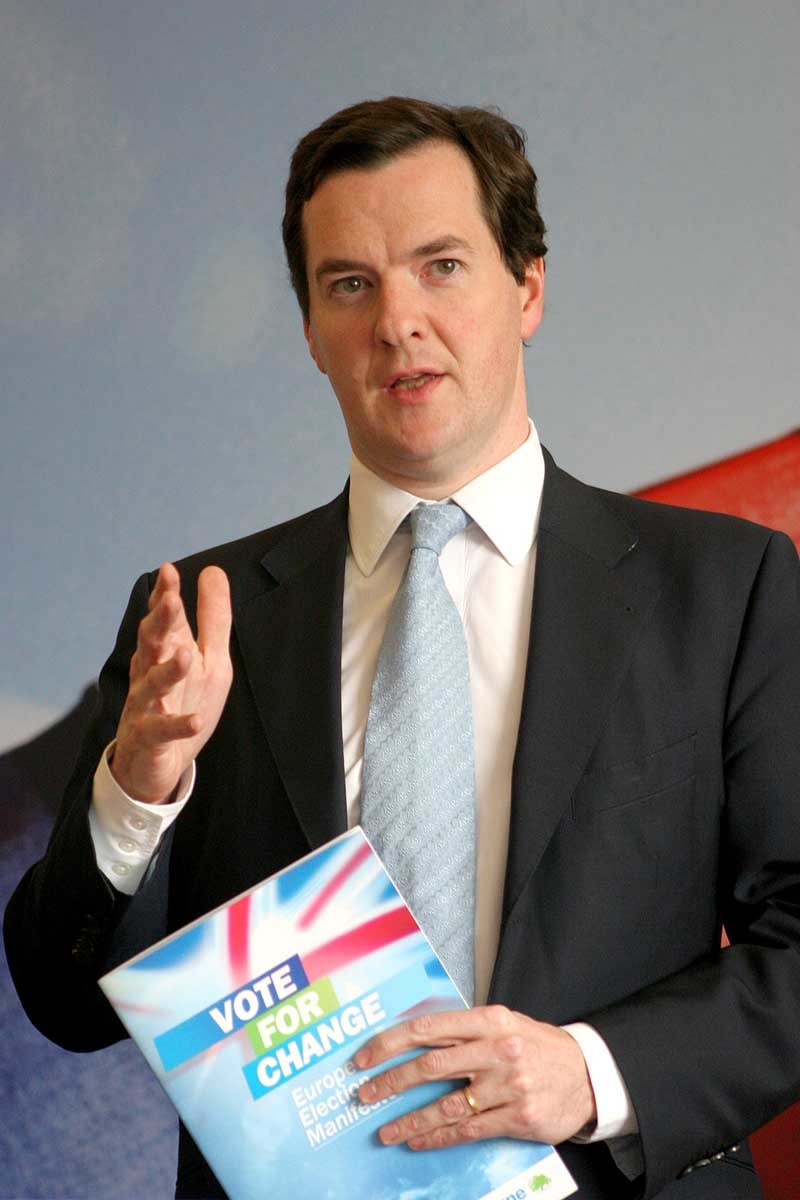The average British family will be £425 a year worse off from January after the Chancellor announced a VAT hike to 20% in his emergency Budget.
The move was the key part of a painful package of spending cuts, benefit cuts and tax rises designed to slash the £155 billion deficit.
George Osborne’s emergency Budget will claw back £120 billion in spending cuts and tax hikes from hard-pressed taxpayers over the next five years.
Scotland’s budget could be slashed by more than £1 billion a year.
From the outset Mr Osborne made it clear that this was the nation’s day of reckoning saying “the years of debt and spending make this unavoidable” and he promised to tell it to the British people “straight.”
“This is an emergency Budget, so let me speak plainly about the emergency we face,” he said.
“The coalition government has inherited from its predecessor the largest budget deficit of any economy in Europe with the single exception of Ireland.
“One pound in every four we spend is being borrowed.
“What we have not inherited from our predecessor is a credible plan to reduce their record deficit.
“I am not going to hide hard choices from the British people or bury them in the small print of the Budget documents.
“You’re going to hear them straight from me, here in this speech.”
For almost an hour he outlined a programme of measures that will affect every man, woman and child in the UK for the next five years.Axe will fallOn October 20 will come the detail of where the axe will fall on major projects and spending areas as the Chancellor unveils the comprehensive spending review.
The announcement that provoked the biggest reaction in the Commons was the increase in VAT from 17.5% to 20%.
It will hit every family in the country by about £425 a year and increase Treasury revenue by £13 billion a year.
There was bad news for the video games industry centred in Dundee with the Chancellor cancelling Labour’s planned tax relief, a move which would have cost around £50 million.
Other tax changes will see corporation tax of 28% cut next year by 1% and each year afterwards to 24%; a bank levy introduced from January to generate £2 billion a year; personal tax allowance raised by £1000 to £7475 from next April; and the planned landline duty to be abolished.
There is to be no new duty increase on tobacco, alcohol or fuel, and a planned increase in duty on cider is to be reversed.
In terms of government spending, the detail will come in the autumn, but yesterday Mr Osborne said that once the NHS and overseas aid had been ring-fenced, government departmental spending would be cut by 25%.
On pay and pensions, there is to be a two-year pay freeze for the public sector in England and Wales, but a £250 pay rise for those earning under £21,000.
It is for the Scottish Government to decide on the majority of public-sector pay awards in Scotland.Public service pensionsPublic service pensions are to be investigated, and the raising of the state pension age to 66 will be “accelerated.”
Almost every area of welfare and benefits are to be cut.
Tax credit payments to families earning more than £40,000 will be reduced; the health in pregnancy grant is to be scrapped; child benefits are to be frozen for three years; and housing benefit is to be reviewed, with the maximum limits reduced to £400 a week for a house.
There was some brighter news for pensioners. The Chancellor said a new “triple lock” will ensure that from next April pensions will increase in line with earnings, inflation or 2.5%whichever is the greatest.
Acting Labour leader Harriet Harman described the Budget as “reckless” and claimed it would “cost jobs.”
She attacked the Liberal Democrats for providing a “fig leaf” for their Conservative coalition partners.
“How could they let the Tories so exploit them?” she said.
“The Lib Dems leaders have sacrificed everything they ever stood for to ride in ministerial cars and to ride on the coat tails of the Tory government.”
